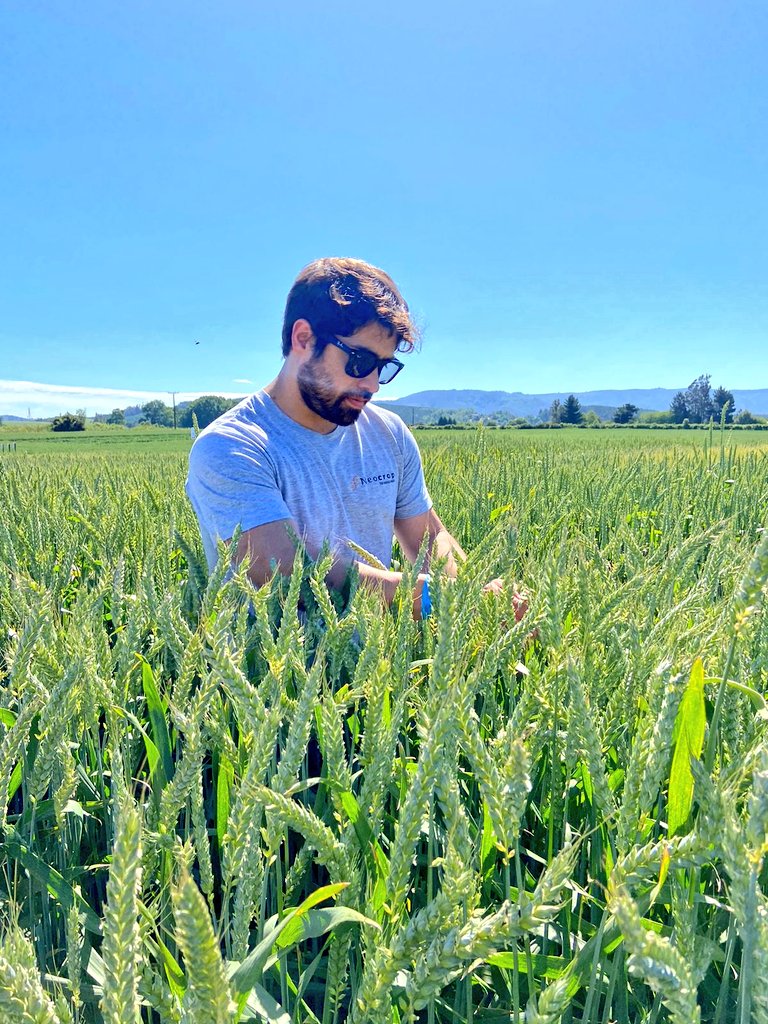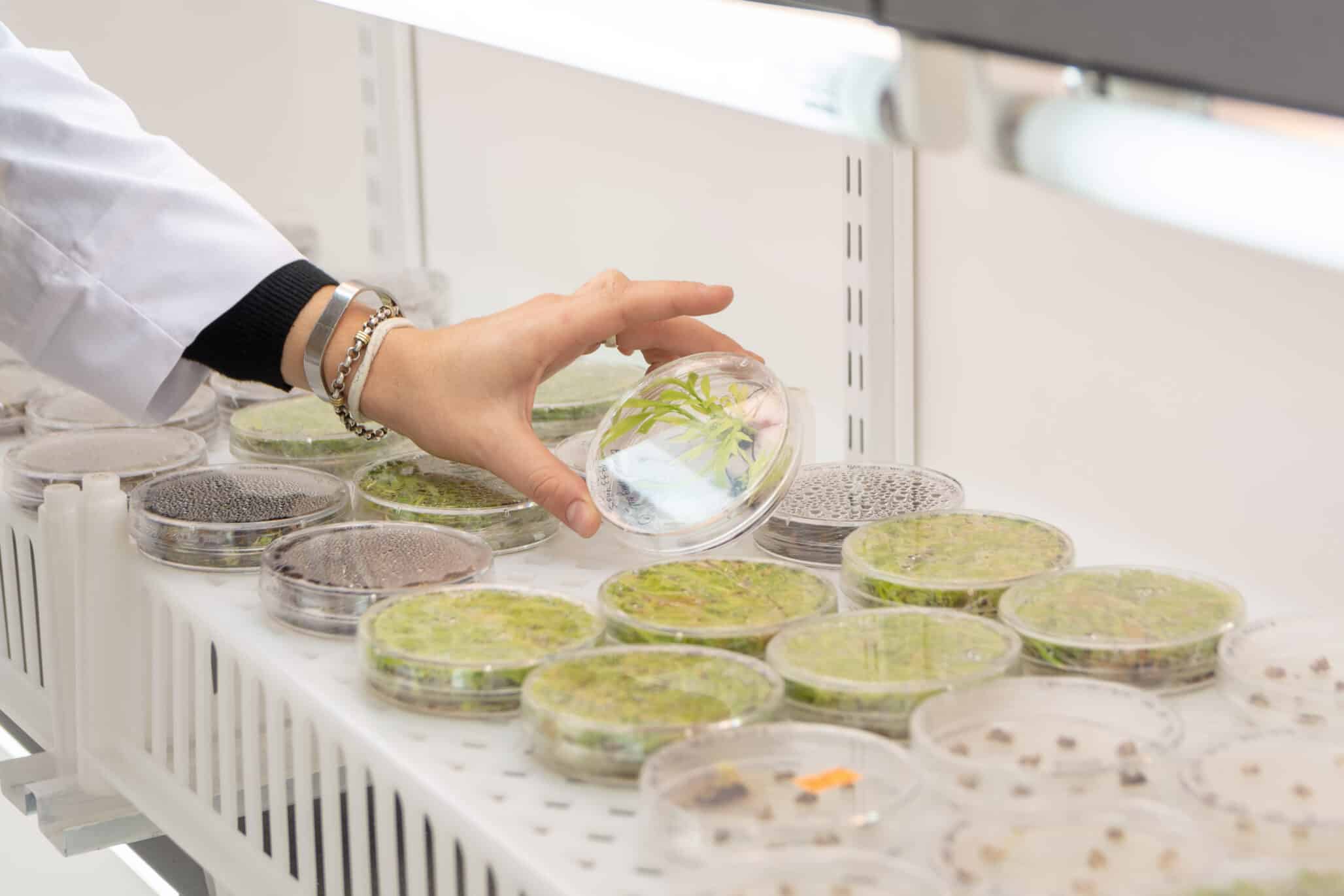South American startups lead the change.
Agriculture, particularly the seed sector, is facing unprecedented challenges, including resource scarcity, climate change, and growing demand for food. In a world where the population continues to grow and natural resources become increasingly limited, innovation in the seed sector is becoming an urgent necessity. Luckily, South America is emerging as a vibrant hub of innovative solutions.
From conventional breeding to cutting-edge technologies such as gene editing, each stage in the evolution of breeding has contributed to the creation of more resistant, resilient and productive crops.
With startups leading the way to more sustainable and efficient practices, companies like NeoCrop Technologies, BioHeuris, ZoomAgri and Rizobacter are proving that innovation coming from South America can change the game in food production.
The Gene Editing Revolution
Gene editing has revolutionized the plant breeding landscape, enabling the development of more resilient varieties adapted to changing climate conditions. Daniel Norero, Co-founder and COO of NeoCrop Technologies, notes that “the ability to make precise changes to a plant’s DNA (without introducing foreign genetic material) allows for faster and more efficient crop improvement.”
Norero stresses that “the speed and precision of these techniques shorten the development time of new agricultural varieties,” emphasizing that “we are not working at random. It is no longer a matter of rolling the dice, but of targeting an outcome with a high probability of success in a single generation.”
This breakthrough has significantly reduced the development time of new agricultural varieties, from a traditional process that could take ten to fifteen years, to now only about five years.
Startups Driving Innovation
The startup ecosystem in South America is flourishing, with companies leveraging technology to improve the quality and efficiency of agricultural production. ZoomAgri, co-founded by Fernando Martínez de Hoz, has gained recognition for using artificial intelligence and image processing to analyze grain quality.

Martínez de Hoz highlights the vibrant innovation ecosystem in the Latin American seed industry. His focus on agtech solutions and the development of advanced seed innovations illustrates how the region is at the forefront of the implementation of modern technologies in agriculture.
“Latin America is a great place to innovate in the broader umbrella that is AgTech, technologies for agriculture,” Martínez de Hoz says. His company’s ZoomBarley product, which determines the varietal purity of barley in less than four minutes, is an example of how technology can optimize traditional processes.
Gabriel Mina, co-founder of Rizobacter, a company with more than 40 years of experience, is a pioneer in biological solutions for seed treatment.
Mina says that the company is aligned with current trends that demand more sustainable agricultural practices, seeking to reduce the use of chemical inputs.
“The growth in the use of biological solutions has outpaced the rate of adoption of chemical technologies,” Mina comments, noting that the industry is responding to market and societal pressure for more sustainable practices.

“Gene editing allows us to do things we could already do, but in a much faster, more accurate and cheaper way,” says Carlos Perez, co-founder of BioHeuris.
This access to advanced technologies has democratized product development, allowing smaller companies, such as BioHeuris, to enter markets previously dominated by large corporations.
Startups are not only responding to the growing demand for sustainable agricultural practices but are also challenging traditional perceptions and emphasizing that the shift to biotechnology is not simply an alternative but a necessary evolution in the seed sector and agriculture in general.
However, the path to widespread adoption of these technologies has its challenges. Resistance to change and the need to educate both growers and advisors in the industry must be recognized.
An Evolving Innovation Environment
The innovation environment in the seed industry in Latin America is characterized by dynamism, but also faces significant challenges. The lack of regulatory harmonization among different countries in the region can hinder the implementation of new technologies. Latin America is the region that has made the most progress with positive regulatory approaches (10 to date), and Chile and Argentina lead in positive responses to regulatory consultations on edited products.

“The industry is calling for agreement on regulations,” Norero emphasizes, stressing that this is crucial to fostering a more competitive and efficient environment. Collaboration between countries, such as a recent agreement between Argentina and Brazil to facilitate the regulation of transgenics, is a positive step towards a more cohesive regulatory framework.
South America’s competitiveness in the global context is remarkable. According to Perez, “commodity-producing countries, such as Argentina and Brazil, have advanced faster in adopting new agricultural technologies than importing countries such as Europe.”
This allows the region to be better prepared to face the challenges of climate change and the growing demand for food. “Genetics is a key issue that cannot be left out of the toolbox to face future challenges,” Norero points out.
Market Opportunities and Challenges
Access to financing is another critical aspect that impacts on the sector’s capacity for innovation. “State contributions are key to finance innovation, especially in the early stages, when investors and venture capitalists in Latin America are reluctant to invest in high-risk R&D businesses,” says Norero, who has seen how his company has scaled its innovations thanks to government incentives in Chile, notes. “Government incentives are essential for startups and emerging companies to develop cutting-edge technologies,” says Mina.
Collaboration between the public and private sectors is also fundamental for advancing regional biotechnology. Martinez de Hoz mentions that “many startups are innovating in biotechnology, bioinformatics, and image processing, which improve processes in the seed industry.” This synergy can accelerate the implementation of effective solutions that address current agricultural challenges.
Sustainability and the Future of the Sector
As the pressure to adopt more sustainable practices intensifies, the focus on biotechnology and gene editing becomes even more relevant. “Seed breeding assisted by cutting-edge genomic tools has the power to continue to provide food sustainably and with the least number of resources possible,” Norero points out. This responds to market demands and is essential to ensure food security in the context of climate change.
The future of the seed sector in South America will depend on the region’s ability to integrate these innovations into its farming practices. “The combination of modern technology and traditional farming practices is key to the future,” Martínez de Hoz says, stressing that success lies in adopting new technologies and knowing how to apply them effectively.
South American startups are playing a key role in transforming the agricultural seed sector. With technologies like gene editing and a growing focus on sustainability, the region is well-positioned to become a global leader in agricultural innovation. However, regulatory harmonization, access to finance and collaboration between the public and private sectors will remain critical challenges.
With the potential to export both products and technologies, South America is poised to meet today’s challenges and can offer valuable solutions for global agriculture. The commitment of innovators such as Daniel Norero, Carlos Pérez, Fernando Martínez de Hoz and Gabriel Mina demonstrates that, with the right approach, the region can lead the way to a more sustainable and efficient agricultural future.













